
Political arguments about the Make Elections Fair Act range from “it will dissolve toxic political partisanship” and “give Arizona’s independent plurality a voice” to “it will threaten the security of our Democracy” and “will turn Arizona into California.”
But how does it actually work?
We’re constantly asked about the mechanics of Prop 140 — is it a Pandora’s box of legislative overreach, or the silver bullet that can reel in some of Arizona’s craziest politicians and reduce the partisanship at the state Capitol?
We can’t tell you what longterm impact it will have on Arizona’s politics. Arizona has tried plenty of good-governance reforms over the years that have had profound unintended consequences.
But today, we’re going to put aside the speculations about what could happen and focus on the mechanics of how Prop 140 would work, if voters approve it.
Open versus closed primaries
First off, what does it mean to have an “open” primary election?
Currently, Republicans hold a primary election where they select their nominees from a list of Republican candidates in an election open only to registered Republican voters (and independents who request a Republican ballot). Democrats do the same. These are called “closed” primaries.
Under Prop 140, primary elections would be “open,” meaning all qualified candidates would be on the same ballot in August, and all voters would get that same ballot regardless of their party affiliation, sending the top vote-getters to the general election in November.
It’s important to note that open primary winners are determined without regard to candidate parties. The top vote-getters win, period. One speculative concern is that this could lead to only one party advancing to a general election, but that’s pretty much a statistical impossibility in Arizona, even in the reddest and bluest voter districts.
Equal access for independents
Today, independent candidates don’t participate in primaries. Instead, they have to collect signatures to end up on the general ballot, and this requires a vastly greater amount of signatures than party-affiliated candidates.
That’s why you rarely see independent candidates in statewide elections.
On average, signature requirements look like this:
Prop 140 requires all candidates for the same office to collect the same number of signatures from voters to qualify, regardless of the candidates’ party affiliation.
Also, any voter could sign a petition for any candidate.
Currently, if you’re a registered Republican, you can’t sign a petition to help a Democratic candidate run for office.
Who pays for primary elections?
Currently, we taxpayers pay the bill for the parties to hold their primary elections, including for races like party precinct committeemen and the presidential preference elections.
Prop 140 would make precinct committee elections a strictly private affair, to be facilitated by the parties themselves.
The parties would also have to pay for their own presidential preference elections,1 unless the parties allow all registered voters to participate regardless of their party affiliation or non-affiliation.
How many candidates will be on my November ballot?
So far, everything we’ve explained is fairly straightforward.
But there’s one big unknown with the Make Elections Fair Act: How many primary winners move on to the November election?
If Prop 140 passes, the state Legislature has until November 1, 2025, to decide.
Some skeptics say this means we would be dangerously dragging the Legislature into our election law-making. But the Arizona Constitution already tasks the Legislature with making election laws, however they see fit. In fact, the Make Elections Fair Act limits their law-making options.
Prop 140 gives the Legislature two options after the open primaries: Allowing two candidates to advance to a majority-win showdown in November, much like partisan elections work now — or allowing three or more candidates to advance, and instituting a ranked-choice-voting system in the November election.2
If lawmakers don’t pass a bill (that the governor will sign) before then, it will be up to Secretary of State Adrian Fontes to decide how many candidates move on from the primary to the general election. But just once. After that, lawmakers can overrule him with a bill, but that would require them to take action. And if the public doesn’t agree with whatever the secretary of state or Legislature comes up with, Prop 140 reserves the public’s right to change it themselves with an initiative.
So lawmakers would largely still be deciding the election laws — but now with the requirement that the primary be open to all candidates and voters.
What is ranked-choice voting?
It’s a system of voting in which voters rank the candidates from favorite to least favorite.
If no candidate gets a majority of votes, the least popular candidate is disqualified and their votes are redistributed to those voters’ second pick.
For example, if you like Robert F. Kennedy, can stomach Kamala Harris, and hate Donald Trump, you’d vote for them in that order. If Kennedy can’t win, your vote goes to Harris instead.
Confused? Watch this one-minute video. You’ll get it.
Vote your conscience
More Arizonans are registered independent and third-party voters than Republicans or Democrats.
And a sweeping majority of Arizona voters, 73%, rate themselves as moderates rather than liberal or conservative.
Yet all 90 legislators in Arizona are either Democrat or Republican.
And very few of them call themselves “moderates.”
Supporters of ranked-choice voting say this misalignment comes down to the fact that it’s so hard for independents to qualify for the ballot, and that voters are afraid of “throwing my vote away” on an independent.
Left-leaning voters are hesitant to vote for independents for fear of splitting the vote and giving a victory to the right, and vice versa.
With ranked-choice, voters could vote for an independent candidate worry-free, knowing that if the independent can’t win, their vote will go to their lesser-of-two-evils party choice.
But if that independent candidate is popular among a majority of voters, they can actually get elected.
Ok, let’s recap
Prop 140 requires open primaries.
Open primaries mean a single primary election for all voters and candidates.
Two or more primary candidates will advance to the general election, either for a top-two face-off or ranked-choice voting.
All candidates will have the same signature requirements.
And partisan party elections (committeemen, etc) will be handled privately by the parties.
There ya go. Happy voting!
Arizona’s March Presidential Preference Election is essentially our presidential primary.
Multi-seat elections, like state House offices and the Corporation Commission, would not require ranked-choice voting.


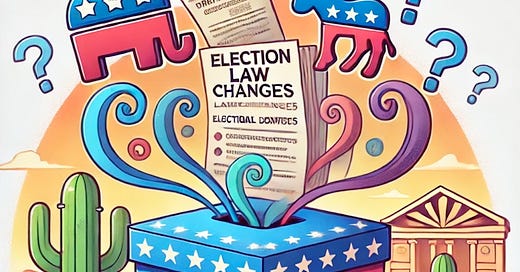


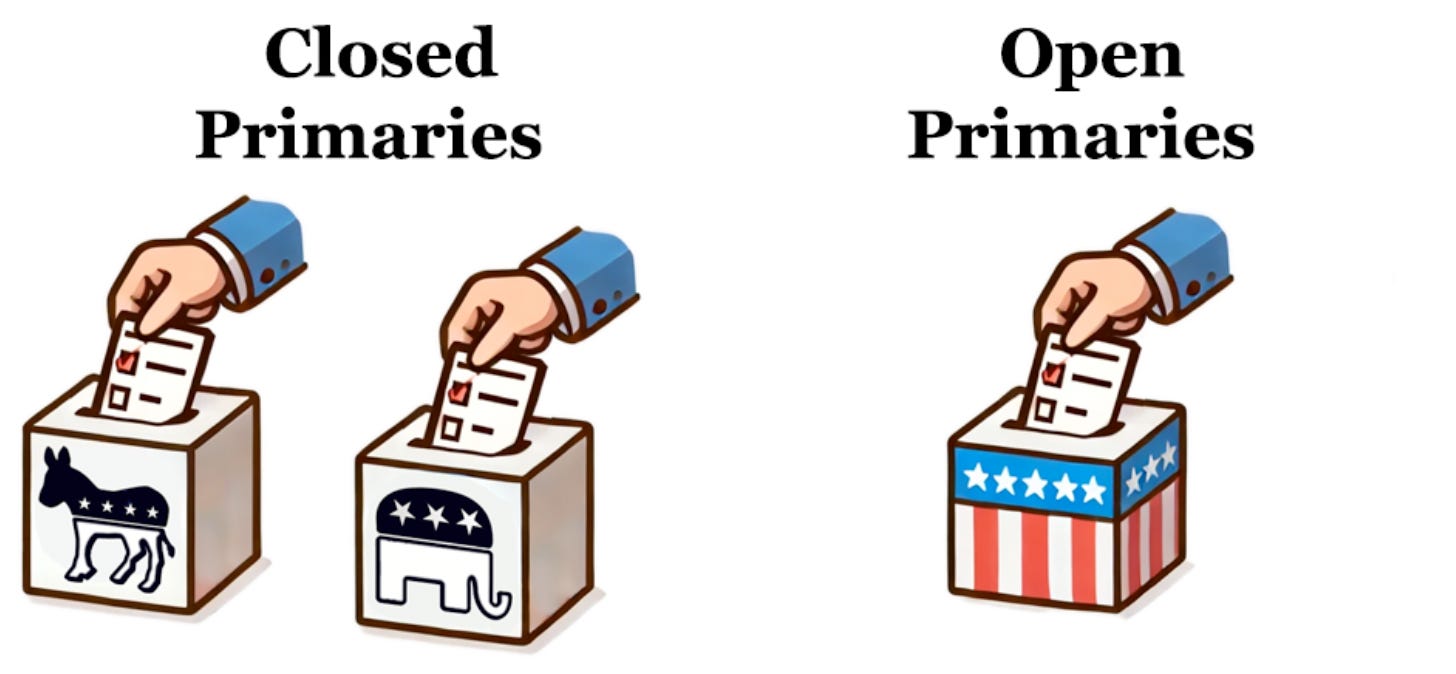
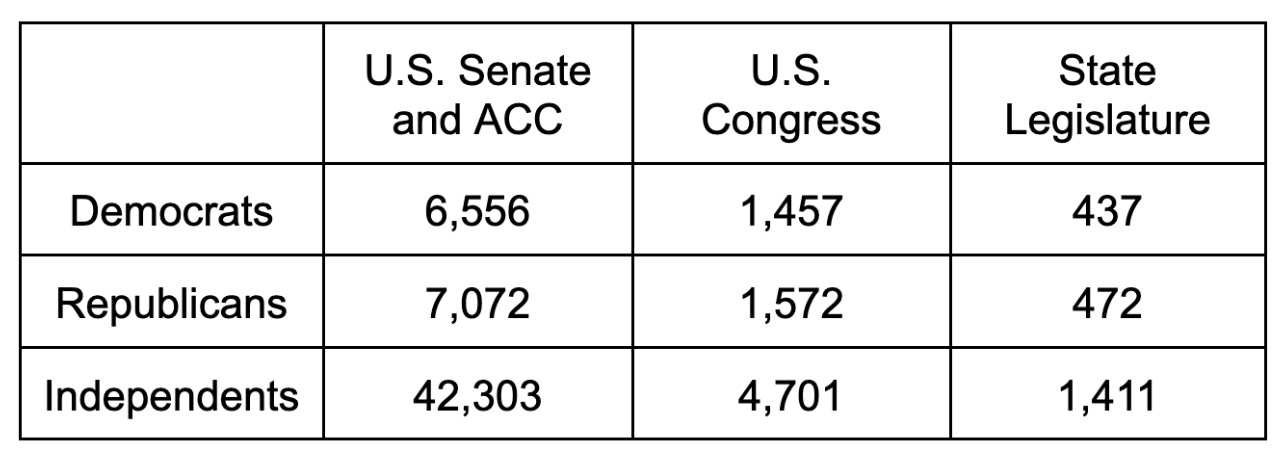
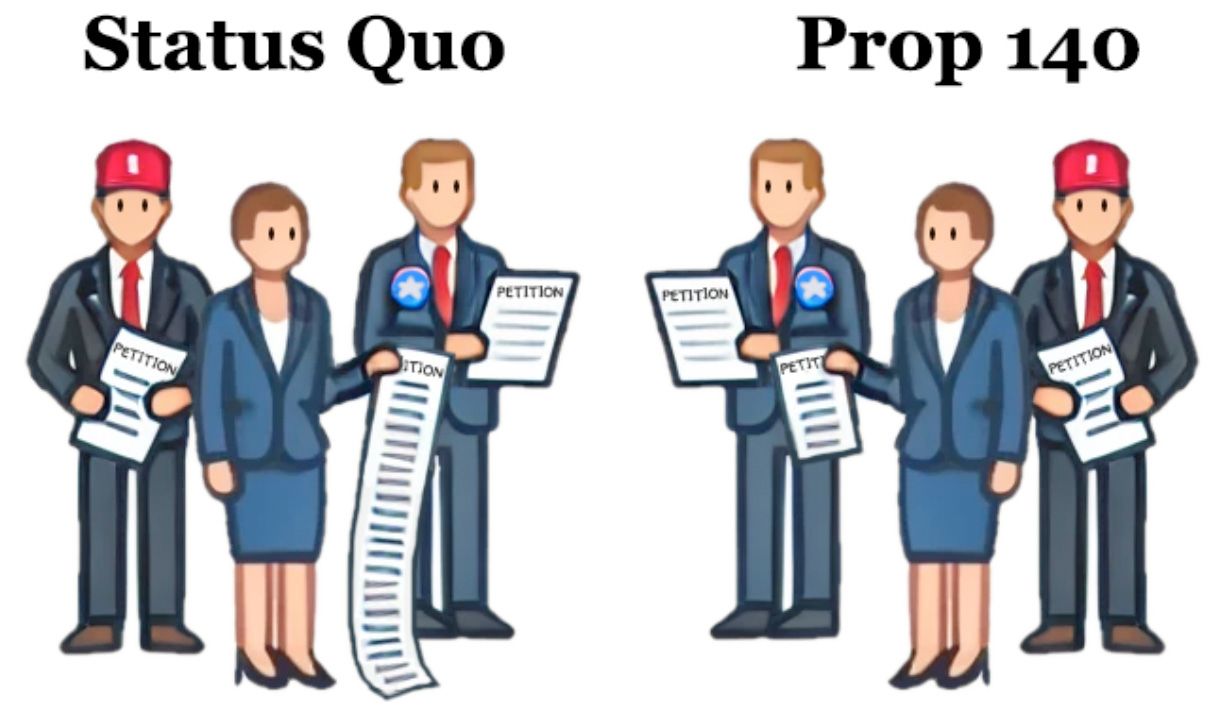
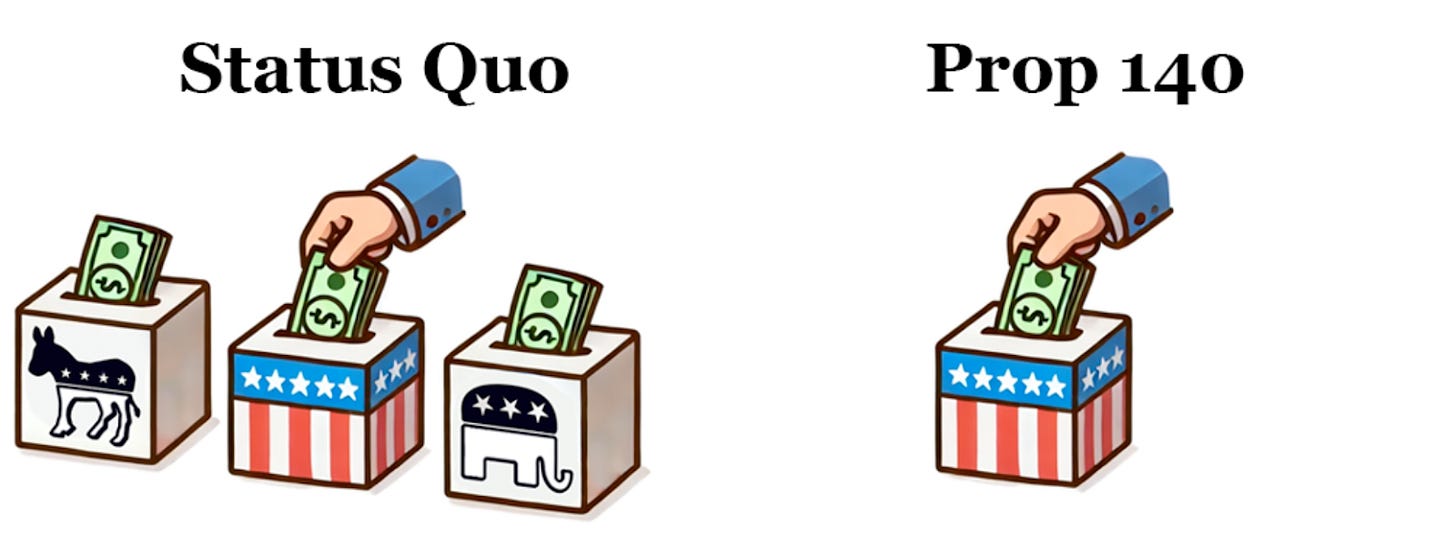
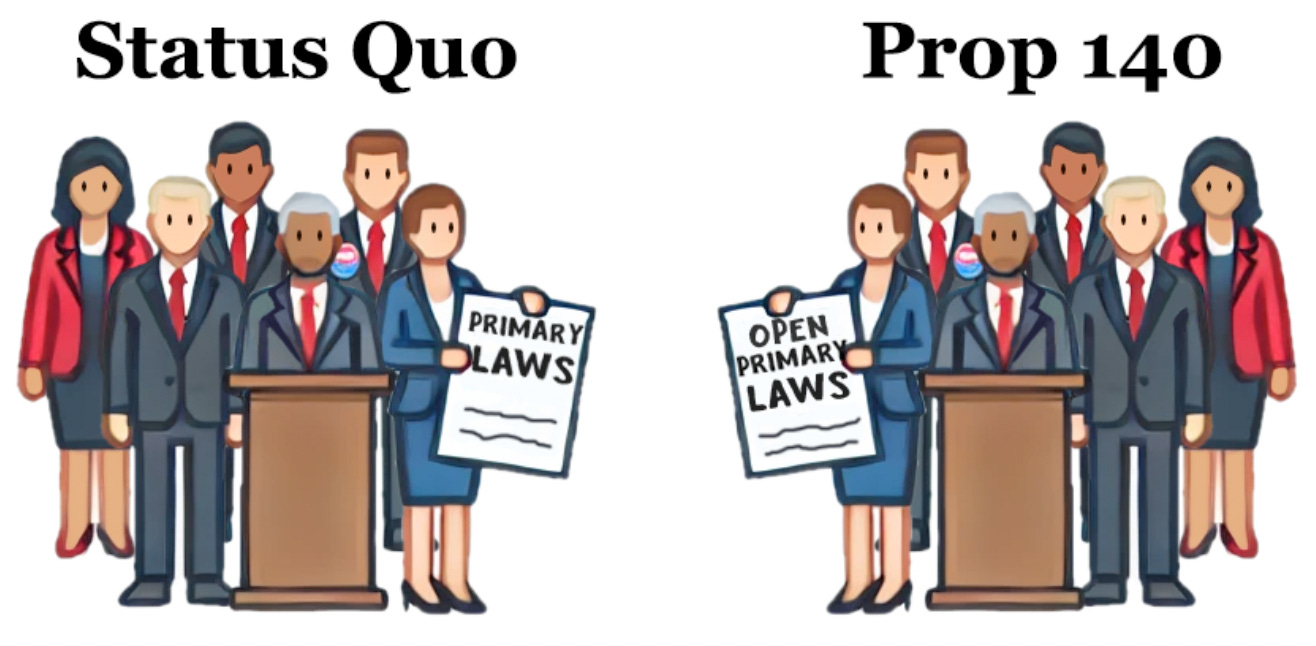
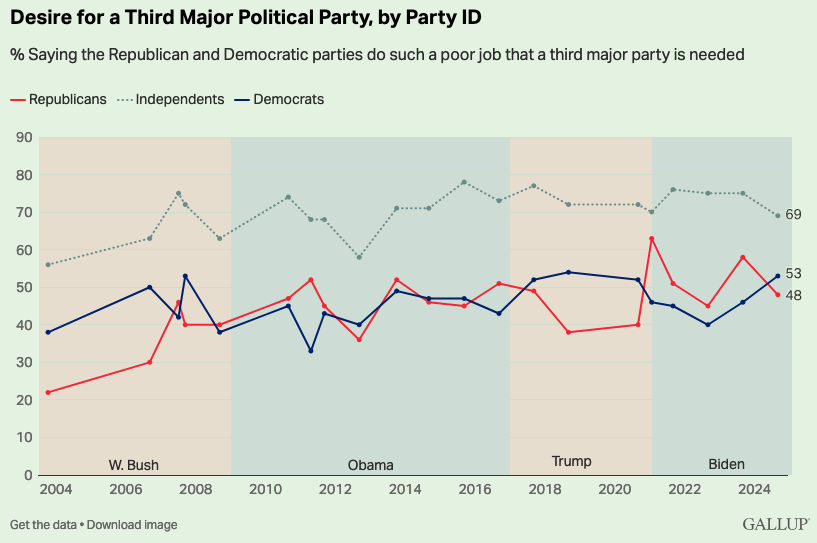






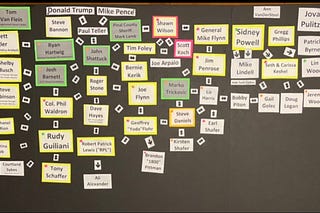

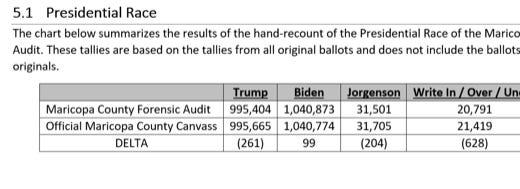


Prop 140 has consistently polled above 52%. That despite noise from both parties opposing it.
So let's skip to the part where the 2026 election has two survivors of the open primary running for election to our State Legislature. Which is where almost all clear thinking folks expect this to go. (not 5 or any other number - just 2).
The Center for the Future of Arizona has told us for years what the vast majority of voters from both parties want -- properly funded schools always (almost) tops that list.
Imagine an Arizona election where every competitive candidate promises a vision for moving Arizona out of absolutely last place in funding. And in Ratios of Students to Teachers.
Where the question is not "If We Do It" -- But how we do it, how fast, and how much. That's an amazing thought. And once again - far more than "good enough" reason to vote yes on 140.
Too bad my last kids just graduated. They never once attended a decently funded school in their 15 years from Pre-K in 2010 through 2024. Their first year the State first slashed school funding. During their 1st and 2nd grade years the M&O Override failed, teacher pay was cut, and 120 SUSD Teachers received RIF Notices.
Their High School years would have been worse, had they not joined their Teachers to walk out in 2018.
Two thousand SUSD kids who graduated last year all suffered that same decade and a half of abuse. As did 80,000+ seniors throughout the State.
Prop 140 will do far more than just move the dial a little. It will change the lives of the next generations of kids. It will change the lives of Teachers who don't want to take a vow of poverty just to teach - but do.
As a side bonus, I can't wait to see Koloden, Chaplick and Kavanagh shuffled out. Already giddy about that moment. Too bad Ugenti-Rita isn't still in office. I'd love to see the look on her face when she came in 6th out of 6.
Prop 140 can definitely weed out the crazy stuff that AZ has the reputation for. Far lefts & far rights wont like it but great things will get done sooner.